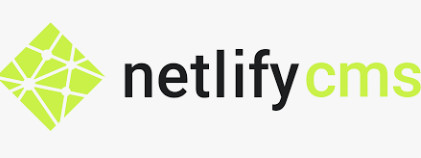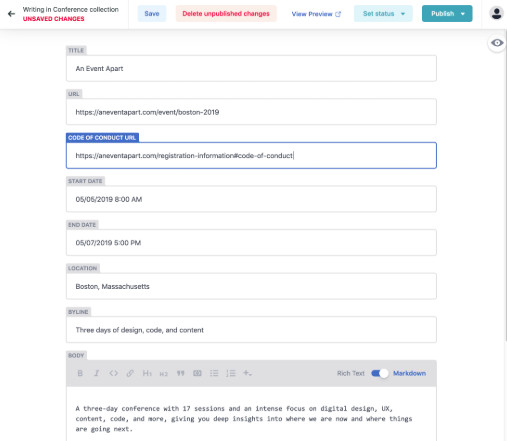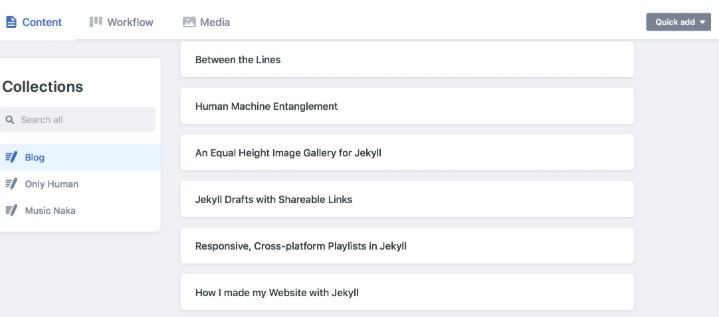Netlify CMS | Web Scraping Tool | ScrapeStorm
Abstract:Netlify CMS is an open-source, Git based lightweight content management system (CMS) designed specifically for static website generators such as Hugo, Jekyll, Gatsby, etc. It seamlessly integrates with Git repositories through an intuitive web interface, allowing non-technical users to visually edit and manage website content, while utilizing Git's version control capabilities for collaboration and change tracking. Its core features include Markdown support, multilingual editing, real-time preview, plugin extension capabilities, and cloud hosting services, balancing security and flexibility, making it suitable for small and medium-sized projects that require efficient content management. ScrapeStormFree Download
ScrapeStorm is a powerful, no-programming, easy-to-use artificial intelligence web scraping tool.
Introduction
Netlify CMS is an open-source, Git based lightweight content management system (CMS) designed specifically for static website generators such as Hugo, Jekyll, Gatsby, etc. It seamlessly integrates with Git repositories through an intuitive web interface, allowing non-technical users to visually edit and manage website content, while utilizing Git’s version control capabilities for collaboration and change tracking. Its core features include Markdown support, multilingual editing, real-time preview, plugin extension capabilities, and cloud hosting services, balancing security and flexibility, making it suitable for small and medium-sized projects that require efficient content management.

Applicable Scene
Netlify CMS is suitable for scenarios that require quick construction of static websites and rely on Git collaboration, especially for non-technical user led content updates such as personal blogs, corporate websites, document sites, etc. It reduces maintenance costs by simplifying the content publishing process.
Pros: Netlify CMS uses Git as its core to implement content version control and collaboration, allowing static website content to be managed through an intuitive interface without the need for a database. It combines lightweight deployment, low maintenance costs, and high security, making it particularly suitable for small and medium-sized projects with low technical barriers.
Cons: Functional extensions rely on the plugin ecosystem, which limits flexibility when dealing with complex content structures or large-scale team collaboration. Additionally, support for non static websites (such as dynamic database driven ones) is weak, requiring the use of other tools to supplement capabilities.
Legend
1. Blog editing page.

2. Blog collections.

Related Article
Reference Link
https://www.netlify.com/blog/tags/cms/
https://www.netlify.com/blog/netlify-cms-to-become-decap-cms/